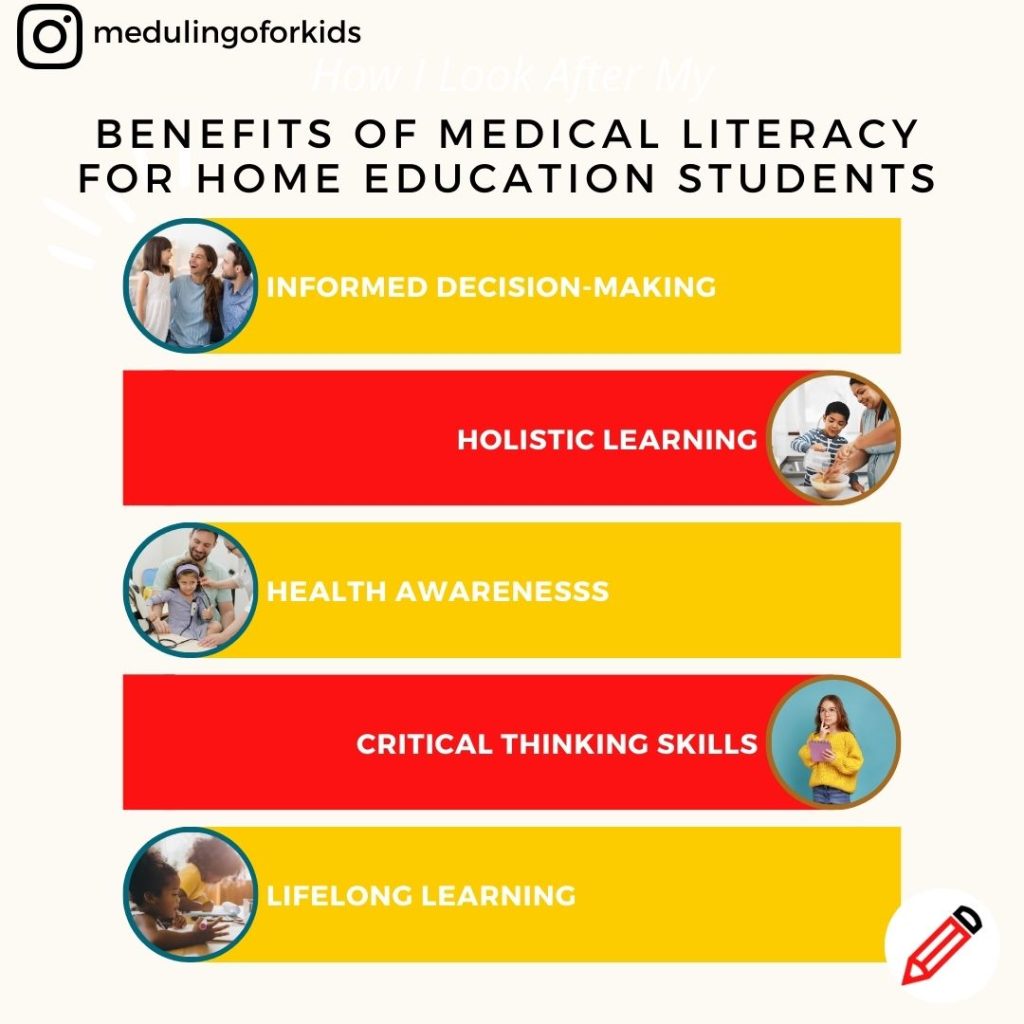The quest for quality educational resources for home education students that inspire curiosity, foster critical thinking, and promote holistic learning experiences is paramount. As parents and educators strive to provide a well-rounded education for their children, integrating medical literacy resources into homeschool curricula emerges as a powerful tool for nurturing informed decision-making, promoting health awareness, and inspiring a lifelong love for learning. From anatomy to allergies, disease prevention to healthcare ethics, medical literacy resources offer home education students a rich tapestry of knowledge that transcends traditional boundaries and empowers them to navigate the complexities of health and wellness with confidence and competence.

1. Empowering Informed Decision-Making:
Medical literacy resources provide homeschool students with the knowledge and skills to make informed decisions about their health and well-being. By exploring medical language, students gain insights into the factors that influence individual and community health outcomes. Armed with evidence and experience-based information and critical thinking skills, home education students learn to evaluate health-related claims, navigate healthcare systems, and advocate for their own health needs—an essential skill set for thriving in today’s complex and rapidly evolving healthcare landscape.
2. Fostering Holistic Learning Experiences:
Integrating medical literacy resources into homeschool curricula fosters holistic learning experiences that transcend traditional subject boundaries. From studying the human body’s anatomy and physiology to exploring global health problems, students engage in interdisciplinary inquiries that bridge life and social sciences, and ethics. Through hands-on activities, simulations, and real-world applications, homeschool students develop a deep appreciation for the interconnectedness of health and wellness, paving the way for lifelong curiosity, exploration, and discovery.
3. Promoting Health Awareness and Wellness:
Medical literacy resources play a pivotal role in promoting health awareness and wellness among homeschool students and their families. Through interactive learning experiences, students learn to identify and address common health concerns, and cultivate habits that support physical, emotional, and social wellness. Medical literacy resources empower homeschool students to take an active role in managing their health and advocating for healthy lifestyle choices within their families and communities.
4. Nurturing Critical Thinking and Inquiry Skills:
Engaging with medical literacy resources fosters the development of critical thinking and inquiry skills essential for navigating an increasingly complex and information-rich world. By analyzing health-related data, evaluating research studies, and synthesizing evidence-based information, homeschool students hone their analytical abilities and learn to distinguish between reliable sources and misinformation. Through inquiry-based learning approaches, students explore ethical dilemmas, examine cultural perspectives, and engage in debates that challenge assumptions and deepen their understanding of healthcare issues. Medical literacy resources empower homeschool students to think critically, question assumptions, and make informed decisions in an ever-changing healthcare landscape.
5. Fostering Lifelong Learning and Empowerment:
Perhaps most importantly, medical literacy resources instill a lifelong love for learning and empowerment among homeschool students. By nurturing curiosity, fostering self-directed inquiry, and promoting a growth mindset, these resources inspire students to explore new frontiers of knowledge and embrace opportunities for personal and intellectual growth. Whether pursuing STEM or healthcare careers, homeschool students equipped with medical literacy skills emerge as informed and empowered individuals ready to tackle the challenges and opportunities of the future with confidence.
Consider Medical Literacy Resources for Home Education Students
In conclusion, the benefits of medical literacy resources for homeschool students are vast and multifaceted, encompassing informed decision-making, holistic learning experiences, health awareness, critical thinking skills, and lifelong empowerment. By integrating medical literacy into homeschool curricula, parents and educators provide their children with a foundation of knowledge and skills that extends far beyond the confines of the classroom, empowering them to thrive in an increasingly complex and interconnected world.
===
Interested in teaching medical literacy pain free? Shop medical literacy resources!

This article was drafted by ChatGPT and edited by Joan Lee Tu, the founder of MedULingo.com.
You may also be interested in the following articles:
The Benefits of Medical Literacy Resources for Home Education Students
Exploring Medical Fields: Strategies for Home Education Students
The Importance of Multiple Learning Modalities for Medical Literacy in Home Education
Fostering Medical Literacy with Self-Directed Learning in Home Education
Medical Camps and K-12 Medical Education
Factors in Choosing a Medical or STEM Career

